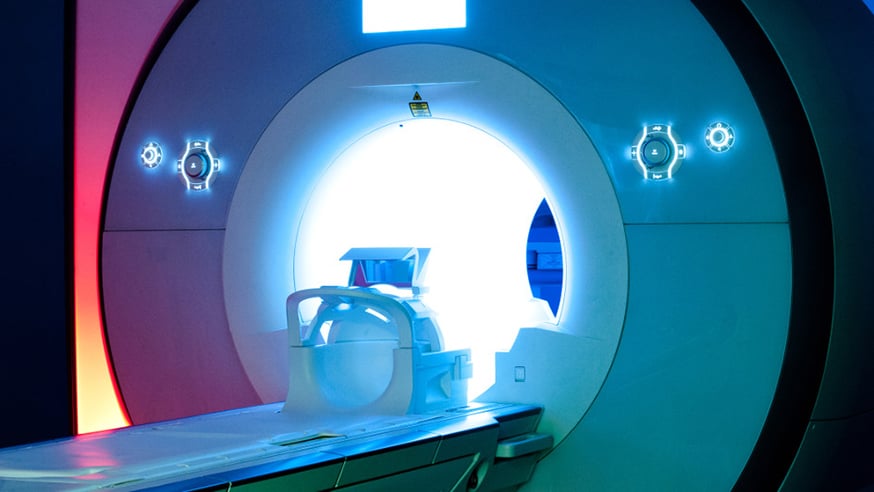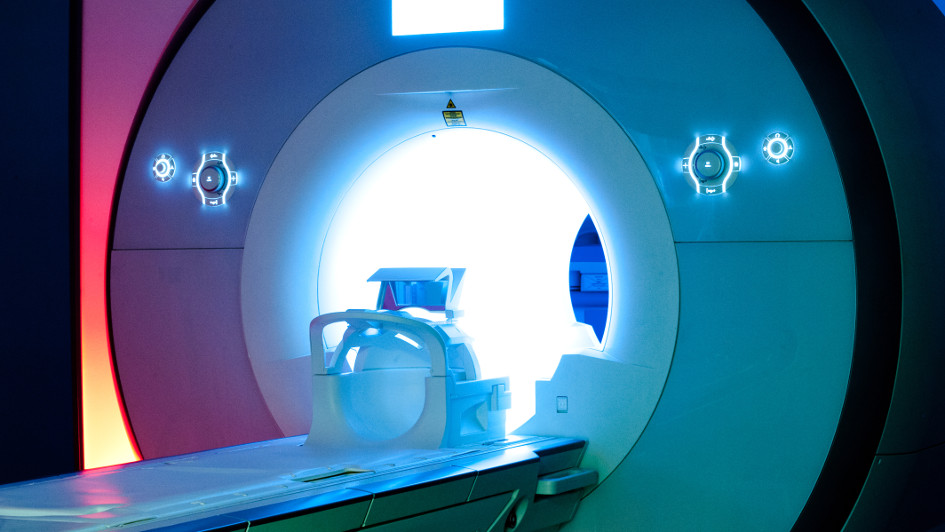
Image: whole body MRI scans were found to benefit Li-Fraumeni syndrome patients
A study has found that people with Li-Fraumeni syndrome would benefit from annual whole-body MRI scans to screen for cancers.
Findings from the SIGNIFIED study, which investigated the benefits of screening patients with Li-Fraumeni syndrome by using whole body MRI scans, were presented on Sunday 15 September at the European Society of Medical Oncology (ESMO) Congress.
The SIGNIFIED study researchers, led by Dr Angela George, Clinical Director of Genomics and Consultant Medical Oncologist in Gynaecology at The Royal Marsden and Honorary Faculty at The Institute of Cancer Research, London, looked at how annual whole-body MRI scans could catch cancers earlier for those with the rare genetic condition.
Clear evidence of significant benefit of scans
In 54 asymptomatic patients, the study found 10 cancerous growths in various parts of the body. There was a large proportion of sarcomas – cancer of the soft tissue – which in the general population are very uncommon, but for those with Li-Fraumeni disease are much more likely.
Li-Fraumeni is a rare syndrome, but those who have it are at a much higher risk of developing cancer due to an inherited gene. All people who have Li-Fraumeni syndrome have a 90 per cent chance of developing one or more types of cancer in their lifetime and a 50 per cent chance of developing cancer before the age of 30.
Dr Angela George, Clinical Director of Genomics and Consultant Medical Oncologist in Gynaecology at The Royal Marsden and Honorary Faculty at The Institute of Cancer Research, London, who leads SIsaid:
“The results of this study are clear in showing a significant benefit in the use of whole-body MRI scans to catch cancers earlier in patients with Li-Fraumeni syndrome.
“Early diagnosis is key in improving outcomes for patients in all cancer types. By catching cancer early, we have a better chance of treating it more effectively, so for the people with Li-Fraumeni syndrome in this study who received a diagnosis, this could be life changing.”
The SIGNIFIED study, run by The Royal Marsden NHS Foundation Trust and supported by funding from The Royal Marsden Cancer Charity, follows on from the pilot UK SIGNIFY study led by Professor Ros Eeles at The Institute of Cancer Research (ICR) and The Royal Marsden.
In 2017, results from SIGNIFY, published in the journal Familial Cancer, suggested that whole-body MRI scans were beneficial to people with TP53 mutations, one of the conditions that can be caused by these mutations is Li-Fraumeni syndrome.
The SIGNIFIED study builds on the earlier pilot and aims to provide more evidence on the potential benefits, including to quality of life, of whole-body MRI for people with Li-Fraumeni syndrome. The study could help demonstrate how whole-body MRI scans could be cost-effectively used across the NHS.
'I feel like the SIGNIFIED trial saved my life'
Laura, 42 from Clacton-on-Sea, was diagnosed with Li-Fraumeni syndrome in 2018, which most of her family have since tested positive for too. Laura and her 19-year-old son enrolled in the SIGNIFIED trial at The Royal Marsden and, after her first scan, Laura was diagnosed with a rare sarcoma at an early stage. Laura underwent surgery and now has no evidence of disease - she credits the trial with saving her life.
Laura, a patient at The Royal Marsden who took part in the SIGNIFIED trial said:
“When we were told about SIGNIFIED, I agreed straight away; I want to do anything I can to detect cancer early and help others affected by the condition.
“My son and I had our first whole body MRIs through the trial in October 2022. I went into it thinking my first scan would light up like a Christmas tree or that there would be nothing there. Luckily, my son’s scan was clear but mine had concerning signs, and I was diagnosed with a rare type of sarcoma not long afterwards. I had no symptoms at all, and, without the trial, I would have been completely oblivious to having this disease, which is prone to travelling straight to the lungs.
“I feel like SIGNIFIED saved my life and I hope the findings from the study will benefit many other people.”
